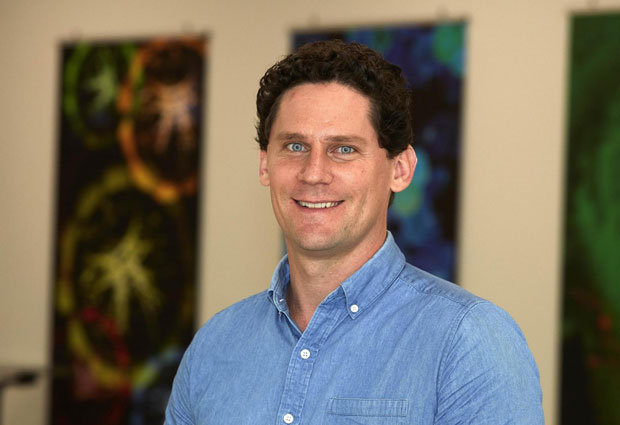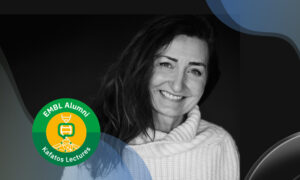
Welcome: Justin Crocker
Meet Justin Crocker, EMBL’s new group leader researching gene regulation during evolution and development

What is your group working on?
We’re trying to understand how the cells in a developing embryo are directed towards particular fates – in other words, how a cell that can initially become any kind of cell in the body is programmed to become a specific type. Our goal is to reach a point where we can program and control developmental fates in a whole organism. What motivates my work is a desire to understand how this information is encoded and how the process of development plays out so precisely every time.
What got you interested in science?
Doing science is fun, it feels almost like a game. You could describe science as a giant puzzle that we are trying to solve. For me one of the most compelling questions is how this linear arrangement of nucleotides carries the information that can ultimately give rise to the huge diversity of life we see around us. This is what really motivates and drives me.
Science is like a giant puzzle that we are trying to solve
How do you feel about being a group leader for the first time?
It’s a time where I can really formulate and explore my own research questions and directions, and at the same time be a mentor for the next generation of scientists. EMBL has a very dynamic and collaborative atmosphere, the people that are working here are really passionate about their work and I think this creates a fantastic working environment. I’m very excited to be starting my group here!
What sort of skills are you looking for in your group?
The main thing I’m interested in is having people in the lab who share the same level of passion I have for science. People who are deeply interested in what they’re studying. I’m also looking for people who are not afraid to challenge themselves in a field. Science is at a very interesting point right now, we have multiple disciplines all coming together and when you’re interacting with these different communities you cannot allow fear to hold you back. Not being intimidated is one of the most important things for doing science.
Not being intimidated is one of the most important things for doing science
Is there somebody or something that inspires you?
For me the biology itself is still the most inspiring thing. Seeing for instance embryos developing and growing, understanding how the same coordinated process happens every time is just incredible.
Do you have a tool you can’t do without?
Yes – my microscopes! Being able to see genes turning off and on and seeing how the genetic material is actually being used and moving dynamically is a very beautiful process.
How does your typical work day look?
A typical day involves getting my ‘hands dirty’ in the lab and at the same time mentoring students, working side by side with people. One of the main reasons I wanted to come to EMBL is because I can still be present in the lab doing my own experiments and training people how to do good science. My first love is doing science and I didn’t want to be too far away from the bench, and EMBL is a pretty unique environment where I can still do that.
Do what you love and what you’re really interested in
What is the best advice you received or wish you had received in your career?
I think scientists are sometimes encouraged to play it safe and do what is expected of them – this is terrible advice! Do what you love and what you’re really interested in.
Do you have any advice that you would like to give to young scientists who would like to become group leaders themselves?
Follow your passions and what you are really interested in understanding. Being a group leader and staying really involved in research is not a nine-to-five job. It is an incredible opportunity but at the same time it comes with a lot of responsibility and you should ask yourself in advance if you’re ready to take that on.


